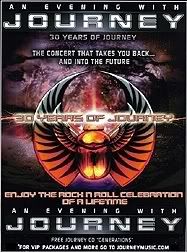News updated February 25, 2009
TICKETMASTER SETTLES AND THEN SQUIRMS
As we reported after the U.S. tour went on sale three weeks ago, Ticketmaster found itself in hot water with the New Jersey state Attorney General as a result of its redirecting potential ticket buyers to its affiliate/scalping arm, TicketsNow, while tickets for the shows at the Izod Center were still available. On Monday, Attorney General Anne Milgram held a press conference at the Izod Center to announce that her office had reached a settlement with Ticketmaster, after the state Department of Consumer Affairs received over 2,000 complaints from fans who had problems with Ticketmaster’s business practices. The official announcement can be found at the AG’s website; the most important points for Springsteen fans are:
* Fans who complained directly to the NJ Department of Consumer Affairs before 5pm on Tuesday, February 17, will automatically be entered into a lottery to be conducted by the New Jersey Sports and Exposition Authority. One thousand fans, almost half of those who filed a grievance, will be given the opportunity to purchase two tickets to one of the shows at the Izod Center, May 21 and 23. These tickets were held back from the original onsale by the promoter for VIPs, ticket drops, and the like.
* Fans who don’t get selected in the lottery will receive a $100 Ticketmaster gift certificate and the chance to purchase tickets to a future (unspecified) Springsteen show in New Jersey.
* Fans who purchased tickets through TicketsNow within 5 hours of the original onsale (i.e., by 2pm on February 2) and who linked to TicketsNow directly from Ticketmaster will have the amount they paid over face value refunded by Ticketmaster.
No love for those who didn't file a complaint. And it should be noted, New Jersey was far from the only market in which Ticketmaster redirected fans to TicketsNow.
The New Jersey AG's office imposed a number of other restraints on Ticketmaster’s business practices going forward, some of which may help concertgoers in the future. But how much it will actually help may depend upon another battleground. A week after the TicketsNow fiasco, Ticketmaster announced that it was merging with Live Nation, the concert promoter. This didn’t sit too well with many people -- including Bruce Springsteen, who warned: "the one thing that would make the current ticket situation even worse for the fan than it is now would be Ticketmaster and Live Nation coming up with a single system, thereby returning us to a near monopoly situation in music ticketing." It didn’t sit too well with members of Congress either. Yesterday, the Senate Judiciary Committee's Subcommittee on Antitrust, Competition Policy and Consumer Rights held hearings on the proposed merger.
The written statements of the various witnesses can be found on the Senate website. Suffice it to say that the subcommittee members, including New York Senator Chuck Schumer, were very skeptical about the merger's supposed benefits to consumers. Schumer blasted Ticketmaster CEO Irving Azoff about the Springsteen onsale, saying that there is no reason that Ticketmaster should be in the secondary market to begin with. (Hear, hear!) Schumer got Azoff to admit that Ticketmaster could make “way more” money through TicketsNow than it does through regular sales. Read a press release from Schumer's office here. Sen. Russ Feingold asked Chicago-area promoter Jerry Mickelson if a major artist like Springsteen could do a tour without Live Nation or Ticketmaster. Mickelson, testifying against the merger, said it could not be done and that there would be no way to get around working with the combined company.
A similar committee in the House of Representatives will hold hearings on Thursday. After that, it will be up to the Department of Justice to weigh in on the proposed merger.
Above: U.S. Senator Charles Schumer (D-NY), right, and Congressman Bill Pascrell (D-NJ) at a February 8 press conference [photograph by Anthony Citara]. Schumer: "Fans who thought they were going to 'The Promised Land' of Springsteen tickets instead found themselves in the 'Badlands' of ticket scalpers." Pascrell: "This recent flap with TicketsNow exposed how a corporation with too much influence over the entertainment industry can hurt the average American music fan."






